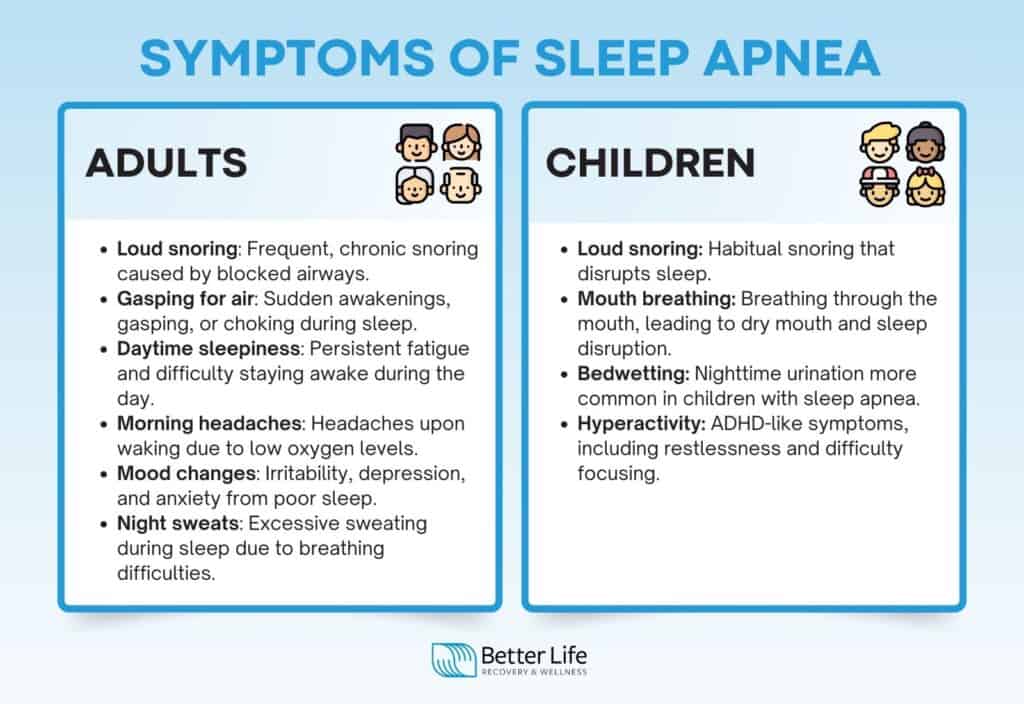The Challenge of Pregnancy Insomnia in the Third Trimester
As pregnancy progresses into the third trimester, many women experience a range of physical and emotional changes. One common challenge that often arises during this stage is insomnia. Pregnancy insomnia in the third trimester can be particularly frustrating as it impacts both the expectant mother’s physical comfort and emotional well-being.
Causes of Pregnancy Insomnia in the Third Trimester
There are several factors that contribute to insomnia during the third trimester of pregnancy:
- Physical Discomfort: The growing baby puts pressure on the bladder, making frequent trips to the bathroom at night a common occurrence. Back pain, leg cramps, and heartburn can also disrupt sleep.
- Hormonal Changes: Fluctuating hormone levels, particularly increased progesterone, can lead to restlessness and difficulty falling asleep.
- Anxiety and Excitement: As the due date approaches, expectant mothers may experience anxiety about labor and delivery or excitement about meeting their baby, which can keep them awake at night.
Tips for Managing Pregnancy Insomnia
While pregnancy insomnia in the third trimester can be challenging, there are strategies that can help improve sleep quality:
- Establish a Bedtime Routine: Create a relaxing bedtime routine to signal to your body that it’s time to wind down. This could include taking a warm bath, practicing gentle yoga or meditation, or reading a book.
- Supportive Sleep Environment: Ensure your sleep environment is conducive to restful sleep. Use pillows to support your body and alleviate discomfort, keep the room cool and dark, and consider using white noise or soothing music to block out distractions.
- Maintain a Healthy Lifestyle: Eat nutritious meals, stay hydrated, and engage in light exercise during the day. Avoid caffeine and heavy meals close to bedtime.
- Talk to Your Healthcare Provider: If insomnia persists or significantly impacts your daily functioning, discuss your concerns with your healthcare provider. They may offer additional guidance or recommend safe sleep aids if necessary.
Conclusion
Pregnancy insomnia in the third trimester is a common challenge for many expectant mothers. By understanding the causes of insomnia and implementing strategies for better sleep hygiene, women can improve their quality of rest during this crucial stage of pregnancy. Remember that taking care of yourself and prioritizing rest is essential for both you and your growing baby’s well-being.
Embracing Third Trimester Insomnia: 5 Unexpected Benefits for Expecting Moms
- Increased opportunity for rest and relaxation during the night.
- Time to practice mindfulness and relaxation techniques to manage stress and anxiety.
- Opportunity to bond with the baby through late-night movements and kicks.
- Preparation for disrupted sleep patterns once the baby arrives.
- Potential for creativity or reflection during quiet, wakeful moments.
Challenges of Third Trimester Pregnancy Insomnia: Fatigue, Stress, Focus Issues, and Physical Discomfort
- Increased fatigue and daytime sleepiness due to disrupted sleep patterns can impact daily functioning.
- Heightened stress and anxiety levels from lack of adequate rest can exacerbate existing pregnancy-related concerns.
- Difficulty concentrating and focusing on tasks may arise, affecting productivity at work or home.
- Physical discomfort from lack of quality sleep, such as back pain and muscle tension, can worsen existing pregnancy symptoms.
Increased opportunity for rest and relaxation during the night.
During the third trimester of pregnancy, one potential benefit of experiencing insomnia is the increased opportunity for rest and relaxation during the night. While disrupted sleep patterns may lead to waking up more frequently, it can also allow expectant mothers to take short breaks, practice deep breathing exercises, or engage in calming activities that promote relaxation. These moments of quiet reflection can be valuable for connecting with the baby, alleviating stress, and preparing mentally for the upcoming labor and delivery. Embracing these periods of wakefulness as opportunities for self-care and rejuvenation can help expectant mothers find moments of peace and serenity amidst the challenges of pregnancy insomnia in the third trimester.
Time to practice mindfulness and relaxation techniques to manage stress and anxiety.
During the third trimester of pregnancy, one potential benefit of experiencing insomnia is that it provides an opportunity for expectant mothers to practice mindfulness and relaxation techniques to manage stress and anxiety. By incorporating these practices into their bedtime routine or during restless nights, pregnant women can cultivate a sense of calmness and inner peace, helping them cope with any worries or fears related to childbirth and motherhood. This time spent focusing on mindfulness and relaxation not only promotes better sleep but also enhances overall well-being during this transformative period.
Opportunity to bond with the baby through late-night movements and kicks.
During the third trimester of pregnancy, one potential benefit of experiencing insomnia is the opportunity it provides for expectant mothers to bond with their baby through late-night movements and kicks. As the world around quiets down and distractions fade away, feeling the gentle or sometimes vigorous movements of the baby can create a special connection between mother and child. These intimate moments of interaction in the stillness of the night can deepen the emotional bond and anticipation of meeting the little one, turning what may be perceived as a sleepless night into a cherished memory of maternal connection.
Preparation for disrupted sleep patterns once the baby arrives.
Experiencing insomnia during the third trimester of pregnancy can serve as a beneficial preparation for the disrupted sleep patterns that often accompany the arrival of a newborn. By navigating through sleep challenges during pregnancy, expectant mothers have the opportunity to adapt to waking up frequently at night and managing fatigue, which are common realities of caring for a newborn. This experience can help women develop resilience and coping strategies that may prove valuable in the postpartum period, fostering a smoother transition into the demands of early motherhood.
Potential for creativity or reflection during quiet, wakeful moments.
During pregnancy insomnia in the third trimester, one potential benefit is the opportunity for creativity or reflection during quiet, wakeful moments. While lying awake in the stillness of the night, expectant mothers may find themselves with a unique chance to engage in introspection, creative thinking, or planning for the future. These peaceful moments can provide a space for deep contemplation, allowing women to explore their thoughts and emotions in a tranquil environment. Embracing these wakeful periods as opportunities for creativity and reflection can turn a challenging experience into a valuable time for personal growth and self-discovery.
Increased fatigue and daytime sleepiness due to disrupted sleep patterns can impact daily functioning.
Increased fatigue and daytime sleepiness due to disrupted sleep patterns in the third trimester of pregnancy can significantly impact daily functioning. The lack of quality sleep can lead to difficulties in concentration, memory retention, and decision-making abilities, making it challenging to perform daily tasks efficiently. Furthermore, persistent fatigue can affect mood stability and emotional well-being, potentially leading to increased stress and irritability. Addressing pregnancy insomnia is crucial not only for the expectant mother’s physical health but also for her overall quality of life during this important stage of pregnancy.
Heightened stress and anxiety levels from lack of adequate rest can exacerbate existing pregnancy-related concerns.
Heightened stress and anxiety levels resulting from the lack of adequate rest due to pregnancy insomnia in the third trimester can exacerbate existing pregnancy-related concerns. The combination of physical discomfort, hormonal changes, and sleep disturbances can create a cycle of heightened stress and anxiety, impacting the expectant mother’s overall well-being. This increased emotional strain may amplify worries about labor and delivery, baby’s health, or parenting responsibilities, further complicating an already challenging time. It is crucial for pregnant women to address insomnia proactively to mitigate the negative effects of heightened stress and anxiety on both their mental health and pregnancy journey.
Difficulty concentrating and focusing on tasks may arise, affecting productivity at work or home.
During the third trimester of pregnancy, one significant con of insomnia is the difficulty in concentrating and focusing on tasks. The lack of quality sleep can lead to cognitive impairment, making it challenging to stay alert and productive both at work and at home. Expectant mothers may find themselves struggling to complete tasks efficiently or retain information, impacting their overall productivity. This can be particularly frustrating as they try to balance their responsibilities while dealing with the physical and emotional demands of pregnancy.
Physical discomfort from lack of quality sleep, such as back pain and muscle tension, can worsen existing pregnancy symptoms.
The con of pregnancy insomnia in the third trimester is that the physical discomfort resulting from a lack of quality sleep, such as back pain and muscle tension, can exacerbate existing pregnancy symptoms. When expectant mothers experience disrupted sleep due to insomnia, their bodies may struggle to find relief from common discomforts associated with pregnancy. This can lead to increased levels of pain and tension, making it more challenging for pregnant individuals to cope with the physical demands of carrying a baby during this crucial stage of development.


